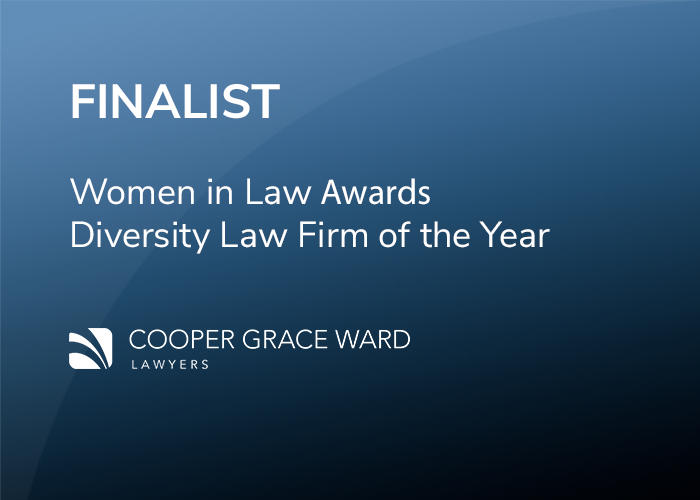A corporate wellbeing consultancy firm has been found jointly responsible, with an employer, for a poster that constituted sexual harassment in the workplace.
Introduction
In Vitality Works Australia Pty Ltd v Yelda (No 2) [2021] NSWCA 147, the NSW Court of Appeal reinforced that ‘horseplay’ and jokes with a double meaning are not immune from being characterised as sexual harassment.
Sexual harassment is defined as any unwelcome sexual advance, unwelcome request for sexual favours or other unwelcome conduct of a sexual nature in circumstances where a reasonable person, having regard to all of the circumstances, would anticipate the possibility that the person harassed would be offended, humiliated or intimidated.
How did we get here?
Ms Yelda was employed by Sydney Water Corporation as a Customer Liaison Officer. She agreed to have her photo taken for a work health and safety campaign that was being created by Vitality Works.
When Ms Yelda saw the poster with her photograph on it, she felt humiliated and offended. The slogan above her photograph said ‘Feel great – lubricate!’ The poster was placed outside the lunchroom and the men’s toilet at Ms Yelda’s workplace.
Ms Yelda brought proceedings in the NSW Civil and Administrative Tribunal (NCAT) alleging that she had been sexually harassed and discriminated against as a result of the poster, in contravention of the Anti-Discrimination Act 1977 (NSW).
While the poster was part of a SafeSpine Campaign about stretching and mobilisation, NCAT accepted that sexually suggestive jokes and comments containing a double meaning can constitute ‘other unwelcome conduct of a sexual nature’.
At first instance, NCAT found that Sydney Water Corporation and Vitality Works sexually harassed Ms Yelda in contravention of the Act by displaying the poster. Sydney Water Corporation also discriminated against Ms Yelda on the ground of sex by subjecting her to detriment, since it treated her differently to male employees and caused Ms Yelda to be offended and humiliated. Ms Yelda was awarded $200,000 in general and aggravated damages, with Sydney Water and Vitality Works ordered to pay $100,000 each. In assessing damages, NCAT accepted that, by reason of the display of the poster, Ms Yelda had suffered serious and prolonged pain and suffering and injury to her feelings.
Vitality Works appeals based on limited involvement
Vitality Works appealed NCAT’s decision to the NSW Court of Appeal to have the damages awarded to Ms Yelda dismissed on the basis that Vitality Works were not liable for the contraventions of the Act.
Vitality Works claimed that it was not ‘jointly engaged’ with Sydney Water Corporation because it was only contracted to take Ms Yelda’s photo, insert the photo onto the poster, and send the poster to Sydney Water Corporation.
However, the Court of Appeal determined that Vitality Works was a ‘workplace participant’, and the design, publication, display and distribution of the poster was done by Vitality Works even though an employee of Vitality Works had not physically affixed the poster to the wall.
Unwelcome conduct of a sexual nature
Vitality Works also claimed that its conduct did not amount to ‘other unwelcome conduct of a sexual nature’. Vitality Works argued that, while Ms Yelda did not specifically consent to the use of her photograph on the poster, the failure to obtain informed consent was not relevant to any sexual harassment claim because it was not conduct of a sexual nature.
The Court of Appeal disagreed and concluded that Vitality Works’ conduct was plainly unwelcome conduct of a sexual nature. It was irrelevant that the poster was not sexually explicit in nature, or that any sexual message was conveyed as a joke through a double meaning. The Court of Appeal held that the poster constituted sexual harassment even though Vitality Works did not intend to sexually harass Ms Yelda.
The impact of changing societal norms
The Court of Appeal importantly noted that, in determining objectively whether particular conduct meets the definition of ‘other unwelcome conduct of a sexual nature’, ‘context is everything’. The meaning of language changes over time as does societal norms, including common understandings about what is and is not conduct of a sexual nature.
Vitality Works’ appeal was dismissed, and it was required to pay the initial award of $100,000 (being 50% of the damages awarded) as well as Ms Yelda’s costs of the appeal.
Key takeaways
The Court of Appeal has sent a clear message to employers that conduct does not need to be sexually explicit to constitute sexual harassment. Subtle forms of harassment such as ‘innuendo, insinuation, implication, overtone, undertone, horseplay, a hint, a wink or a nod’ are all examples of behaviours capable of being deployed to sexualise conduct in ways that may be unwelcome.
It is also clear in recent decisions that Courts and Commissions are more frequently recognising the liability of not just employers but also ‘workplace participants’, which describes a broad relational connection including corporate contractors, self-employed individuals, volunteers, and unpaid trainees.






